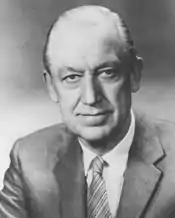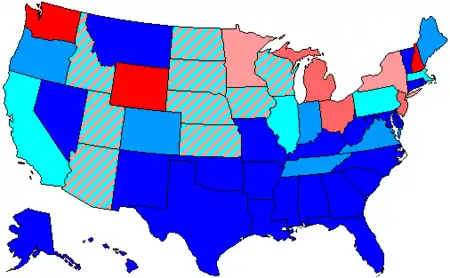| 86th United States Congress | |
|---|---|
85th ← → 87th | |
 United States Capitol (1956) | |
January 3, 1959 – January 3, 1961 | |
| Members | 96–100 senators 435–437 representatives |
| Senate majority | Democratic |
| Senate President | Richard Nixon (R) |
| House majority | Democratic |
| House Speaker | Sam Rayburn (D) |
| Sessions | |
| 1st: January 7, 1959 – September 15, 1959 2nd: January 6, 1960 – September 1, 1960 | |
The 86th United States Congress was a meeting of the legislative branch of the United States federal government, composed of the United States Senate and the United States House of Representatives. It met in Washington, D.C. from January 3, 1959, to January 3, 1961, during the last two years of the presidency of Dwight D. Eisenhower.
The apportionment of seats in the House of Representatives was based on the 1950 United States census until Alaska and Hawaii were admitted as states in 1959. Then, the membership of the House temporarily increased to 437 (seating one member from each of those newly admitted states and leaving the apportionment of the other 435 seats unchanged); it would remain at 437 until reapportionment resulting from the 1960 census.
The Democrats maintained full control of Congress, with greatly increased majorities in both chambers.
Major events
- January 7, 1959: The United States recognizes the new Cuban government of Fidel Castro
- February 12, 1959: In commemorations of the 150th anniversary of Abraham Lincoln's birth, Congress met in joint session to hear actor Fredric March give a dramatic reading of the Gettysburg Address, followed with an address by writer Carl Sandburg[1]
- February 1, 1960: Greensboro sit-ins begin
- May 1, 1960: U-2 incident
- June 29, 1960: King Bhumibol Adulyadej of Thailand addresses a Joint Meeting of Congress
- November 8, 1960: 1960 United States presidential election: John F. Kennedy elected
Major legislation
- 1959: Airport Construction Act, Pub. L. 86–72
- September 14, 1959: Landrum–Griffin Act, Pub. L. 86–257, 73 Stat. 519
- April 22, 1960: Narcotics Manufacturing Act of 1960, Pub. L. 86–429, 74 Stat. 55
- May 6, 1960: Civil Rights Act of 1960, Pub. L. 86–449, 74 Stat. 86
- June 12, 1960: Multiple-Use Sustained-Yield Act of 1960, Pub. L. 86–517, 74 Stat. 215
- July 14, 1960: Flood Control Act of 1960, Pub. L. 86–845, 74 Stat. 488
- September 13, 1960: Social Security Amendments (Kerr-Mill aid), Pub. L. 86–778, 74 Stat. 976
Constitutional amendments

- June 16, 1960: Approved an amendment to the United States Constitution extending the right to vote in the presidential election to citizens residing in the District of Columbia by granting the District electors in the Electoral College, as if it were a state, and submitted it to the state legislatures for ratification
- Amendment was later ratified on March 29, 1961, becoming the Twenty-third Amendment to the United States Constitution
Treaties
- December 1, 1959: Antarctic Treaty signed
- January 19, 1960: Treaty of Mutual Cooperation and Security between the United States and Japan signed
States admitted
- January 3, 1959: Alaska was admitted as the 49th state
- August 21, 1959: Hawaii was admitted as the 50th state
Party summary
Senate
| Party (shading shows control) |
Total | Vacant | ||
|---|---|---|---|---|
| Democratic (D) |
Republican (R) | |||
| End of previous congress | 50 | 45 | 95 | 1 |
| Begin | 64 | 34 | 98 | 0 |
| End | 66 | 100 | ||
| Final voting share | 66.0% | 34.0% | ||
| Beginning of next congress | 65 | 35 | 100 | 0 |
House of Representatives
| Party (shading shows control) |
Total | Vacant | ||
|---|---|---|---|---|
| Democratic (D) |
Republican (R) | |||
| End of previous congress | 232 | 193 | 425 | 10 |
| Begin | 282 | 153 | 435 | 0 |
| End | 281 | 151 | 432 | 5 |
| Final voting share | 65.0% | 35.0% | ||
| Beginning of next congress | 263 | 174 | 437 | 0 |
Total members: 437. The increase over the usual 435 members was due to the admission of Alaska and Hawaii, whose seats were temporary until reapportionment following the 1960 Census.
Leadership
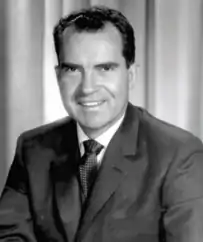

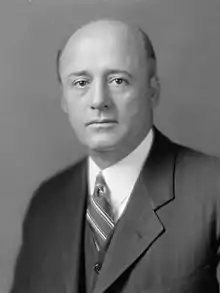
Senate
Majority (Democratic) leadership
- Majority Leader: Lyndon B. Johnson
- Majority Whip: Mike Mansfield
- Caucus Secretary: Thomas C. Hennings Jr., until September 13, 1960
- George Smathers, afterwards
Minority (Republican) leadership
House of Representatives
- Speaker: Sam Rayburn (D)
Majority (Democratic) leadership
Minority (Republican) leadership
Caucuses
Members
Senate
Senators are popularly elected statewide every two years, with one-third beginning new six-year terms with each Congress. Preceding the names in the list below are Senate class numbers, which indicate the cycle of their election, In this Congress, Class 2 meant their term ended with this Congress, requiring reelection in 1960; Class 3 meant their term began in the last Congress, requiring reelection in 1962; and Class 1 meant their term began in this Congress, requiring reelection in 1964.
House of Representatives
The names of members of the House of Representatives are preceded by their district numbers.
Changes in membership
Senate
| State (class) |
Vacated by | Reason for change | Successor | Date of successor's formal installation[lower-alpha 1] |
|---|---|---|---|---|
| Hawaii (1) |
New seats | Hawaii achieved statehood August 21, 1959. | Hiram Fong (R) | August 21, 1959 |
| Hawaii (3) |
Oren E. Long (D) | |||
| North Dakota (1) |
William Langer (R) | Died November 8, 1959. | Norman Brunsdale (R) | November 19, 1959 |
| Oregon (2) |
Richard L. Neuberger (D) | Died March 9, 1960 | Hall S. Lusk (D) | March 16, 1960 |
| North Dakota (1) |
Norman Brunsdale (R) | Successor elected June 28, 1960. Successor qualified August 8, 1960. |
Quentin Burdick (D) | August 8, 1960 |
| Missouri (3) |
Thomas C. Hennings Jr. (D) | Died September 13, 1960 | Edward V. Long (D) | September 23, 1960 |
| Oregon (2) |
Hall S. Lusk (D) | Successor elected November 8, 1960 | Maurine Neuberger (D) | November 9, 1960 |
| Massachusetts (1) |
John F. Kennedy (D) | Resigned December 22, 1960, after being elected President of the United States | Benjamin A. Smith II (D) | December 27, 1960 |
House of Representatives
| District | Vacated by | Reason for change | Successor | Date of successor's formal installation[lower-alpha 1] |
|---|---|---|---|---|
| Missouri 4th | George H. Christopher (D) | Died January 23, 1959 | William J. Randall (D) | March 3, 1959 |
| New York 43rd | Daniel A. Reed (R) | Died February 19, 1959 | Charles Goodell (R) | May 26, 1959 |
| Ohio 6th | James G. Polk (D) | Died April 28, 1959 | Ward Miller (R) | November 8, 1960 |
| Hawaii Territory at-large | John A. Burns (D) | Hawaii achieved statehood. | Seat eliminated August 21, 1959 | |
| Hawaii at-large | New seat | Hawaii achieved statehood August 21, 1959 | Daniel Inouye (D) | August 21, 1959 |
| Illinois 12th | Charles A. Boyle (D) | Died November 4, 1959 | Vacant | Not filled this term |
| Iowa 4th | Steven V. Carter (D) | Died November 4, 1959 | John Henry Kyl (R) | December 15, 1959 |
| Pennsylvania 17th | Alvin Bush (R) | Died November 5, 1959 | Herman T. Schneebeli (R) | April 26, 1960 |
| New York 23rd | Isidore Dollinger (D) | Resigned December 31, 1959 | Jacob H. Gilbert (D) | March 8, 1960 |
| Pennsylvania 18th | Richard M. Simpson (R) | Died January 7, 1960 | Douglas Hemphill Elliott (R) | April 26, 1960 |
| North Carolina 12th | David McKee Hall (D) | Died January 29, 1960 | Roy A. Taylor (D) | June 25, 1960 |
| Washington 3rd | Russell V. Mack (R) | Died March 28, 1960 | Julia Butler Hansen (D) | November 8, 1960 |
| Pennsylvania 18th | Douglas Hemphill Elliott (R) | Died June 19, 1960 | J. Irving Whalley (R) | November 8, 1960 |
| North Dakota at-large | Quentin Burdick (D) | Resigned August 8, 1960, after becoming U.S. Senator | Vacant | Not filled this term |
| Massachusetts 5th | Edith Nourse Rogers (R) | Died September 10, 1960 | ||
| Wyoming at-large | Edwin Keith Thomson (R) | Died December 9, 1960 | ||
| New York 5th | Albert H. Bosch (R) | Resigned December 31, 1960, after being elected judge of Court of Queens County | ||
Committees
Lists of committees and their party leaders for members of the House and Senate committees can be found through the Official Congressional Directory at the bottom of this article. The directory after the pages of terms of service lists committees of the Senate, House (Standing with Subcommittees, Select and Special) and Joint and, after that, House/Senate committee assignments. On the committees section of the House and Senate in the Official Congressional Directory, the committee's members on the first row on the left side shows the chairman of the committee and on the right side shows the ranking member of the committee.
Senate
- Aeronautical and Space Sciences (Chairman: Lyndon B. Johnson; Ranking Member: Styles Bridges)
- Agriculture and Forestry (Chairman: Allen J. Ellender; Ranking Member: George D. Aiken)
- Appropriations (Chairman: Carl Hayden; Ranking Member: Styles Bridges)
- Armed Services (Chairman: Richard B. Russell; Ranking Member: Leverett Saltonstall)
- Banking and Currency (Chairman: A. Willis Robertson; Ranking Member: Homer Capehart)
- District of Columbia (Chairman: Alan Bible; Ranking Member: J. Glenn Beall)
- Finance (Chairman: Harry F. Byrd; Ranking Member: John J. Williams)
- Foreign Relations (Chairman: J. William Fulbright; Ranking Member: Alexander Wiley)
- Government Operations (Chairman: John Little McClellan; Ranking Member: Karl E. Mundt)
- Interior and Insular Affairs (Chairman: James E. Murray; Ranking Member: Henry Dworshak)
- Interstate and Foreign Commerce (Chairman: Warren G. Magnuson; Ranking Member: Andrew F. Schoeppel)
- Judiciary (Chairman: Warren G. Magnuson; Ranking Member: Alexander Wiley)
- Labor-Management Relations (Select) (Chairman: [data missing]; Ranking Member: [data missing]; Ranking Member: [data missing])
- Labor and Public Welfare (Chairman: J. Lister Hill; Ranking Member: Barry Goldwater)
- National Water Resources (Select) (Chairman: [data missing]; Ranking Member: [data missing])
- Preserve Historical Records of the Senate (Special) (Chairman: [data missing]; Ranking Member: [data missing])
- Post Office and Civil Service (Chairman: Olin D. Johnston; Ranking Member: Frank Carlson)
- Public Works (Chairman: Dennis Chavez; Ranking Member: Francis Case)
- Rules and Administration (Chairman: Thomas C. Hennings; Ranking Member: Carl T. Curtis)
- Small Business (Select) (Chairman: John J. Sparkman)
- Space and Aeronautics (Special) (Chairman: [data missing]; Ranking Member: [data missing])
- Unemployment Problems (Special) (Chairman: [data missing]; Ranking Member: [data missing])
- Whole
House of Representatives
- Agriculture (Chairman: Harold D. Cooley; Ranking Member: Charles B. Hoeven)
- Appropriations (Chairman: Clarence Cannon; Ranking Member: John Taber)
- Armed Services (Chairman: Carl Vinson; Ranking Member: Leslie C. Arends)
- Banking and Currency (Chairman: Brent Spence; Ranking Member: Clarence E. Kilburn)
- District of Columbia (Chairman: John L. McMillan; Ranking Member: James C. Auchincloss)
- Education and Labor (Chairman: Graham A. Barden; Ranking Member: Carroll D. Kearns)
- Foreign Affairs (Chairman: Thomas E. Morgan; Ranking Member: Robert B. Chiperfield)
- Government Operations (Chairman: William L. Dawson; Ranking Member: Clare E. Hoffman)
- House Administration (Chairman: Omar Burleson; Ranking Member: Paul F. Schenck)
- Interior and Insular Affairs (Chairman: Wayne N. Aspinall; Ranking Member: John P. Saylor)
- Interstate and Foreign Commerce (Chairman: Oren Harris; Ranking Member: John B. Bennett)
- Judiciary (Chairman: Emanuel Celler; Ranking Member: William M. McCulloch)
- Merchant Marine and Fisheries (Chairman: Herbert C. Bonner; Ranking Member: Thor C. Tollefson)
- Post Office and Civil Service (Chairman: Tom J. Murray; Ranking Member: Edward H. Rees)
- Public Works (Chairman: Charles A. Buckley; Ranking Member: James C. Auchincloss)
- Rules (Chairman: Howard W. Smith; Ranking Member: Leo E. Allen)
- Science and Astronautics (Chairman: Overton Brooks; Ranking Member: Joseph W. Martin Jr.)
- Small Business (Select) (Chairman: Wright Patman)
- Standards of Official Conduct
- Un-American Activities (Chairman: Francis E. Walter; Ranking Member: Donald L. Jackson)
- Veterans' Affairs (Chairman: Olin E. Teague; Ranking Member: Edith Nourse Rogers)
- Ways and Means (Chairman: Wilbur D. Mills; Ranking Member: Richard M. Simpson)
- Whole
Joint committees
- Atomic Energy (Chairman: Sen. Clinton P. Anderson; Vice Chairman: Rep. Carl T. Durham)
- Conditions of Indian Tribes (Special)
- Construction of a Building for a Museum of History and Technology for the Smithsonian
- Defense Production (Chairman: Rep. Paul Brown; Vice Chairman: Sen. Homer Capehart)
- Disposition of Executive Papers
- Economic
- Immigration and Nationality Policy (Chairman: Vacant; Vice Chairman: Vacant)
- Legislative Budget
- The Library (Chairman: Sen. Theodore F. Green; Vice Chairman: Rep. Omar Burleson)
- Navajo-Hopi Indian Administration
- Printing (Chairman: Sen. Carl Hayden; Vice Chairman: Rep. Omar Burleson)
- Reduction of Nonessential Federal Expenditures (Chairman: Sen. Harry F. Byrd; Vice Chairman: Rep. Clarence Cannon)
- Taxation (Chairman: Rep. Wilbur D. Mills; Vice Chairman: Sen. Harry F. Byrd)
- Washington (DC) Metropolitan Problems
Employees
Legislative branch agency directors
Senate
- Chaplain: Frederick Brown Harris, Methodist
- Parliamentarian: Charles Watkins
- Secretary: Felton McLellan Johnston
- Librarian: Richard D. Hupman
- Secretary for the Majority: Robert G. Baker
- Secretary for the Minority: J. Mark Trice
- Sergeant at Arms: Joseph C. Duke
House of Representatives
- Clerk: Ralph R. Roberts
- Doorkeeper: William Mosley "Fishbait" Miller
- Parliamentarian: Lewis Deschler
- Postmaster: H. H. Morris
- Reading Clerks: George J. Maurer (D) and Joe Bartlett (R)
- Sergeant at Arms: Zeake W. Johnson Jr.
- Chaplain: Bernard Braskamp - Presbyterian
See also
- 1958 United States elections (elections leading to this Congress)
- 1960 United States elections (elections during this Congress, leading to the next Congress)
Notes
References
- Specific citations
- ↑ "Nation Honor Lincoln On Sesquicentennial" (PDF). Yonkers Herald-Statesman. Northern Illinois University Libraries. Associated Press. February 11, 1959. Archived from the original (PDF) on November 1, 2013. Retrieved April 25, 2013.
Congress gets into the act tomorrow, when a joint session will be held. Carl Sandburg, famed Lincoln biographer, will give and address, and actor Fredric March will read the Gettysburg Address.
- General references
- Gould, Lewis L. (2005). The Most Exclusive Club. Cambridge, MA: Perseus Books Group. ISBN 0-465-02778-4.
- Remini, Robert V. (2006). The House. New York: HarperCollins Publishers, Inc. ISBN 0-06-088434-7.
- "Biographical Directory of the U.S. Congress". U.S. Congress. 2005. Archived from the original on June 1, 2006. Retrieved June 1, 2006.
- "Congressional History". U.S. House of Representatives. 2006. Archived from the original on June 1, 2006. Retrieved June 1, 2006.
- "Statistics and Lists". U.S. Senate. 2006. Archived from the original on June 1, 2006. Retrieved June 1, 2006.
- House of Representatives Session Calendar for the 86th Congress (PDF). Archived from the original (PDF) on September 20, 2018. Retrieved June 6, 2016.
- Official Congressional Directory for the 86th Congress, 1st Session.
- Official Congressional Directory for the 86th Congress, 2nd Session.
- Pocket Congressional Directory for the 86th Congress.

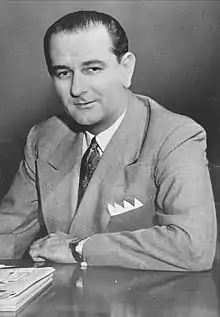


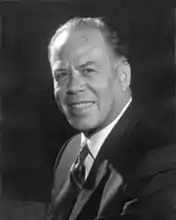
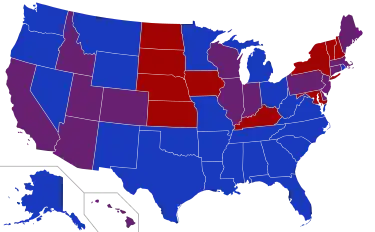
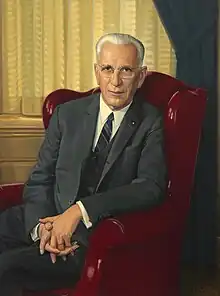
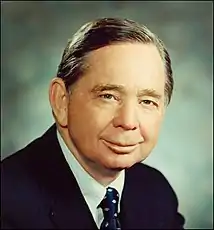
.jpg.webp)
